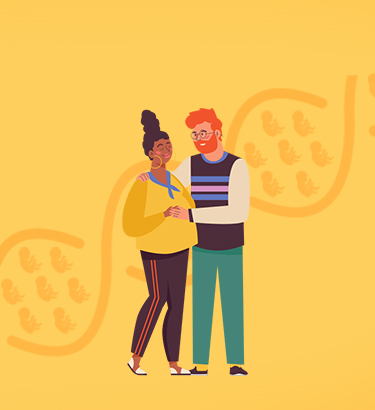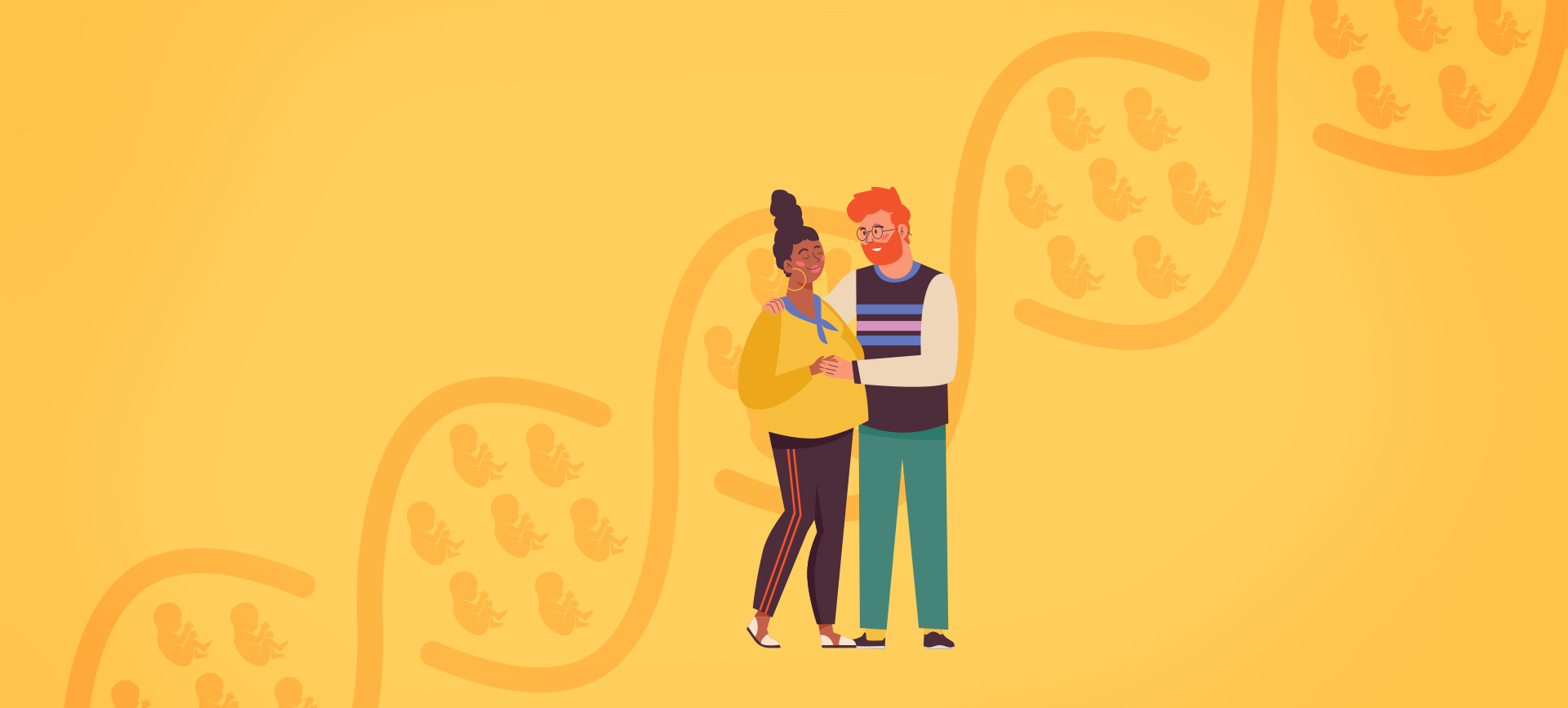
Prenatal genetic testing is an option for all future parents either before or during pregnancy. If you or your partner has a history of genetic disorders in your family, or you're 35 or older (which scientists have found increases your risk of having a baby with missing, damaged or extra chromosomes) then your OB-GYN is more likely to refer you to a genetic counselor who can guide you through the options.
Genetic testing can be expensive, but many insurance companies will cover testing for high-risk pregnancies and for women 35 and older. You may need a referral from your doctor in order to get coverage.
The tests you might be presented with fall into two categories: screening tests and diagnostic tests.
Screening tests
The first type of screening test is a carrier screening, which tests the people who are or want to become pregnant, using blood or a tissue sample from inside the cheek. The carrier screening can detect the genes for certain inherited disorders, such as cystic fibrosis, Tay-Sachs disease, sickle cell disease and fragile X syndrome.
If both people who are trying to get pregnant together carry a recessive gene of one of these disorders (or other less common ones), their offspring have a roughly 25 percent chance of inheriting the abnormal gene and a 50 percent chance of becoming a carrier with a recessive gene.
The carrier screening can be done before a person is pregnant, while the next two tests are done during the first trimester. First-trimester screening includes a blood screening of the pregnant person and an ultrasound.
The nuchal translucency test is the first-trimester ultrasound screening, which measures the thickness of skin at the back of the fetus' neck. An increased thickness can be an early indicator of Down syndrome.
Additional screening tests can be done in the second trimester, including the '"quadruple blood test'" which screens for Down syndrome, Edwards syndrome (trisomy 18) and neural tube defects (NTDs). Another ultrasound can be done between 18 and 22 weeks to look for physical defects to the brain, spine, facial features, abdomen, heart and limbs.
Screening tests are all non-invasive and very accurate for the existence of risk—although there is always a small chance of a false-positive. Screening can not tell you if your baby will have any kind of disorder—only if they are at high or low risk for certain disorders. When assessed together, these blood tests and ultrasounds can provide a comprehensive assessment of many risk factors that could impact your baby's health and development.
'"Together the scan and blood test are around 95 percent to 98 percent accurate, but they never specifically confirm a diagnosis because they are only a screen,'" said Kathy Fray, senior midwife and maternity consultant.
The results of screening can be confusing, but a genetic counselor can help you assess the results and decide on next steps. Should your screening tests reveal a high level of risk for certain disorders, you may consider opting for genetic diagnostic testing.
Diagnostic tests
Diagnostic tests are a chance to look closer and determine if a genetic disorder or aneuploidy (a condition of having missing or extra chromosomes) is likely present. These tests are done on the cells of the fetus or placenta, and are considered invasive.
An amniocentesis is a procedure that uses a very thin needle to sample and test the amniotic fluid. '"There are risks,'" warned Kecia Gaither, M.D., OB-GYN, director of Perinatal Services at NYC Health + Hospitals/Lincoln. These include '"bleeding, infection [and] possible pregnancy loss.'"
'"But the risks are minuscule—less than one percent, generally,'" Gaither continued. '"The amniotic fluid that is removed is made up when the fetus urinates again.'"
A chorionic villus sampling (or CVS) is when a sample of tissue is taken from the placenta. CVS presents a slightly higher risk of miscarriage than the amniocentesis—but the risks are extremely low for both.
'"Nothing is 100 percent,'" Gaither said. But these two tests '"offer the highest certainty for diagnosis.'"













